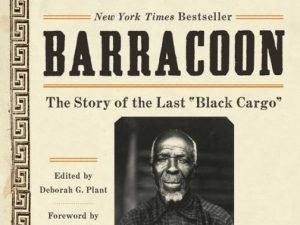Brandon J. Dixon in Harvard Magazine:
 Two Harvard scholars have recently contributed to the conversation on Barracoon: The Story of the Last “Black Cargo,” a previously unpublished 1931 manuscript by Zora Neale Hurston, and its significance for African-American history and literature. Published by HarperCollins this April, the much-anticipated book recounts the life of Cudjo Lewis, who was believed to be the last living survivor of the slave trade.
Two Harvard scholars have recently contributed to the conversation on Barracoon: The Story of the Last “Black Cargo,” a previously unpublished 1931 manuscript by Zora Neale Hurston, and its significance for African-American history and literature. Published by HarperCollins this April, the much-anticipated book recounts the life of Cudjo Lewis, who was believed to be the last living survivor of the slave trade.
Hurston is best known for her short stories and novels, including Their Eyes Were Watching God, but she originally studied anthropology at Barnard: she traversed the country to collect African-American folk traditions and published research on Haitian voodoo. Though billed as the last testament to the horrors of the slave trade, Barracoon is, at its core, an anthropological work: Hurston represents Lewis in his own voice, in a dialect that turned white publishers away from the novel in 1931. Lewis’s story—of his capture in West Africa, transportation abroad the Clotilda in 1860 (the last vessel known to have carried slaves to the United States), enslavement, emancipation, and survival under the harsh Jim Crow laws of the South—is interwoven with the wealth of cultural knowledge Hurston elicited from him. To highlight the nuances of the text, Nicholas Rinehart ’14, a Ph.D. candidate in English, and Marshall scholar Rebecca Panovka ’16 have in separate articles drawn attention to the African folklore tradition Barracoon unearths, and the work’s tangled publication history.
More here.
